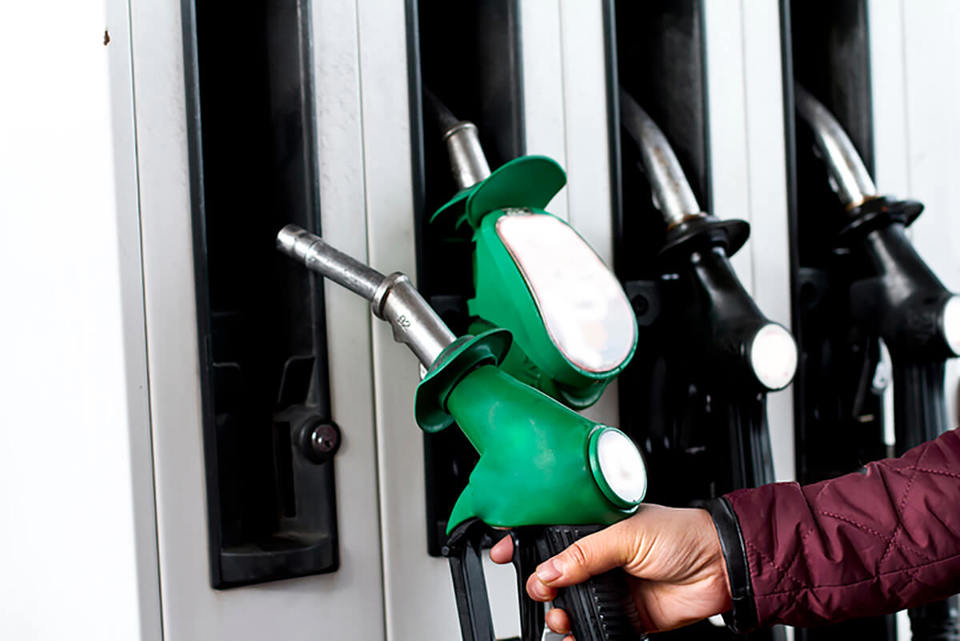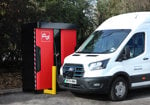Fleets are hopeful that a hike in fuel prices of around 2p per litre from April 1 will be abandoned after lobby groups petitioned the Government to abandon the tax increase.
The increase, announced in the Pre-Budget Report, means fleets will pay around 70p in tax for every pound spent on diesel or petrol.
Overall, the increase will affect 4.7 million company car users, 2.5 million vans and 500,000 lorries and could cost businesses up to £1 billion.
Fleet managers looking to mitigate the impact of the price increase should it come into force should consider issuing fuel cards.
“If the Government goes ahead with its fuel duty hike, it will join local authorities in conveniently forgetting that drivers also face the threat of severe financial hardship from the credit crunch - echoing Richmond's proposed £800,000 raid on car parking, Edinburgh's unjustified doubling of parking permit costs for large families and proposed workplace charges in Nottingham and Milton Keynes,” says Edmund King, AA president.
However, fleet managers looking to cut their fuel bills should consider issuing their drivers with fuel cards, according to Arval.
“To be cost-effective fleets must be able to manage fuel spend effectively and they can only truly do this with the information collected at the point-of-sale, for each driver transaction, by a fuel card,” explained Mike Waters, market insight director at Arval.
“Fuel management is crucial but without visibility of where fuel spend is going there’s not a chance that fleet managers can control costs effectively, let alone achieve reductions.”
Fuel cards can restrict what drivers can and cannot purchase and even which outlets they can purchase from, with designated price-per-litre targets set for drivers.
“By directing drivers to the lower cost outlets, a fleet fully committed to this strategy can remove something in the region of 10% from their fuel costs,” added Waters.
Alternatively, fleets could benefit from a price guarantee Forecourt Fuels is offering new customers on a number of its fuel cards, subject to an average minimum monthly usage of 1,000 litres.
It claims it can save a minimum of 3p per litre (inclusive) against national average pump prices for a minimum period of 12 months.
For a fleet manager with 50 vehicles each averaging 20,000 miles per year, that could equate to a total saving of more than £3,000 for the 12-month period.
Nick Staples, managing director of Forecourt Fuels, said: “We are targeting fleets that pay pump prices and are keen to make savings on their fuel costs.”
But, while fleets look to mitigate the planned rise, an investigation has been launched by the European Commission amid allegations the full benefit of recent falls in the global price of oil are not being passed on to motorists.
UK pump prices ended the year up 13.2% for petrol and 21.2% for diesel, with diesel now 9.21p per litre higher than petrol, compared to 4.9p per litre at the start of 2008.
And despite the price of crude staying at about $45 a barrel since the start of the year, petrol rose by more than one-and-a-half times the current rate of inflation between January and February, according to the AA.
A spokesman for the Commission explained the study would assess differences in price and any market failures which impede an “open and competitive EU-wide market”, as well as the impact of taxation.
The AA, which wrote to the EU’s competition commissioner to raise its concerns over pricing, welcomed the probe.
“Since the aftermath of Hurricane Katrina in 2005, when wholesale petrol prices fell 4p a litre but it took almost two months for that to be reflected at the pump, the AA has been calling for a transparent track of wholesale price movements,” said King.
“The benefits are double-edged. Not only would consumers see whether or not average pump prices are fair, but the fuel industry and retailers would be in a far better position to defend themselves against charges of profiteering.”
A point not lost on the Petrol Retailers Association (PRA), which also welcomed the Commission’s study and the transparency it would bring.
“This will draw attention to the fact that it is not retailers that drive fuel prices, or benefit from rises,” explained a PRA spokesman.
“Independent fuel retailers operate on ever-tighter margins in order to remain competitive with supermarket fuel outlets.
"Many independents operate on margins as low as 1p per litre or less.”
The European Commission report is expected to be published in June 2009.
















Login to comment
Comments
No comments have been made yet.